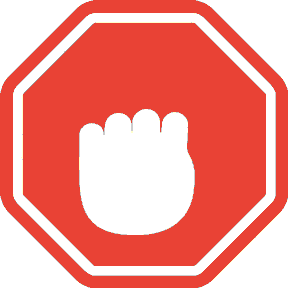Understanding ZOPA in a Startup Negotiation
- Vinay Nair

- Oct 19, 2020
- 3 min read
Startup founders looking to raise funds are always skeptical regarding the value of the equity they are looking to offer, and the value that an investor will place on the same amount of equity. Some startups value their equity at a much higher rate than what is acceptable, whereas some are willing to sell equity at a much cheaper rate than the actual value.
This is where ZOPA – the zone of possible agreement, comes into the picture. The zone of possible agreement is the bargaining range in a negotiation where two or more parties can find a common ground.
It is also called the bargaining zone or bargaining range.
When the buyer agrees to align with the terms that the seller agrees to, it is a positive ZOPA.
When both the parties do not agree on certain terms it is referred to as a negative ZOPA
In these instances, a deal can or cannot be reached unless one or both parties are willing to adjust their view of what is acceptable.

Most of the startup founders either completely ignore the concept of ZOPA or fail to identify the appropriate bargaining range. The ZOPA is critical to the successful outcome of a negotiation. A ZOPA may not always exist as some parties may have very varying interests that may or may not converge.
Another important concept to consider while understanding the ZOPA is the Best Alternative to a Negotiated Agreement (BATNA). It is simply the plan that the party can fall back on if the negotiation is unsuccessful.
The BATNA also helps in understanding the bottom line for each party
So, a zone of possible agreement exists if there is an overlap between these bottom line positions. If there is not, negotiation is very unlikely to succeed. In fact, it will only succeed if one party either realizes that their BATNA is not as good as they may have thought, or decides for some other reason to accept the agreement, even though a different option might yield better results.
A ZOPA can be understood with the help of an example.
Mr. A is buying a car from Mr. B. And A wants to buy the car for Rs.10,00,000 or less and B is willing to sell it for Rs.9,00,000 than the two parties have a positive ZOPA but, if B will not sell below Rs.12,00,000 and A will not buy above Rs.10,00,000, they have a negative ZOPA.

A few points to remember are:
Negotiations can be affected by circumstances. These circumstances can play a pivotal role in widening the bargaining range or even constricting it. Being able to adapt to these changes is a key factor to being a successful negotiator.
Both the parties should be aware of the upper and lower boundaries of the ZOPA. By knowing the boundaries of a ZOPA, it's possible to push your counterpart close to their limit to reach a favourable deal.
Before entering into actual negotiations, each party should plan and prioritise certain criteria . Preparing your own acceptable limits and favourable limits as the ZOPA is hardly ever known to both the parties.
An effective negotiator can shape the perceptions of the ZOPA through tactical moves to arrive at a favourable agreement.
No matter how much negotiation occurs, an agreement can never be reached outside of the zone of possible agreement. In order to reach an agreement successfully, negotiating parties must understand one another’s needs, values and interests. Negative ZOPA can also be overcome if the negotiating parties are willing to learn about one another’s desires and needs.
If you would have watched the famous television show Shark Tank investors and founders only enter into a deal in the ZOPA. Founders might come with a higher value for their offerings but the investors critically analyse the offering and come to a much more realistic and preferable value. If the value offered by the investors lies within the bargaining range of the founder, a deal is struck.
During times of crisis like the current coronavirus pandemic, investors carry a pessimistic approach to investing and are likely to reduce their bargaining zone. Founders will have to take this into account while formulating a provisional ZOPA.
Founders need to understand that having a particular range of values for their offering gives them a better chance of meeting the investors expectations and striking a deal beneficial to both the parties.



































































































































































































Comments